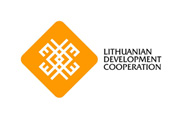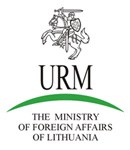Migration and Eastern Europeans in UK public opinion
Less than 12 months ago, British tabloid newspaper ‘the Daily Mail’ wrote of an ‘exodus’ of Eastern European migrants to the UK; an ‘influx’ which had placed considerable strain upon UK schools, hospitals and other public services. However, the recent mass movement of people from Syria, Iraq and other war-torn regions has prompted a temporary change in the focus for such rhetoric. Central and Eastern European countries which only a year ago were on the receiving end of such hostility, are now considered the frontline of the ‘refugee crisis’ facing their Western European counterparts.
Although this change in emphasis can be explained by the pressing need for some to help and for others to dissuade the large number of people seeking sanctuary in Europe, it also tells us something about hierarchical attitudes toward migration within Britain, and perhaps Western Europe more broadly. A recent study found that British public opinion favours white migrants from Australia and Western Europe. Migrants from Eastern Europe were the least preferred of white migrants, however were still favoured above non-white groups. While migration from Central and Eastern Europe will no doubt remain a point of contention in the run up the referendum on EU membership, for some, an influx of white, culturally similar migrants from this region would be far preferable to the 20,000 Syrian refugees the British government has pledged to settle over the next five years.
This is of particular interest to me because my doctoral research focuses on media and public opinion towards different countries, and the people from those countries. Although I focus specifically upon media and public opinion towards Russia, an unexpected outcome of carrying out interviews with the UK public about Russia, is that interviewees often talk about the non-Russian former Soviet Republics, specifically in the context of migration from this region to the UK. Although the people I interviewed had rarely met a Russian person, they often had colleagues or acquaintances from other areas of the former Soviet space. To the average Briton, Russia and the former Warsaw Pact countries remain inextricably linked. These conversations therefore allowed me to dig deeper into British attitudes towards Central and Eastern European migrants, casting further light upon what the UK public opinion is of people from this region.
While migration from Central and Eastern Europe may be preferred to the movement of non-white groups, what I found was that the people I spoke to had very clear ideas about which Central and Eastern European migrants were favourable to others. Bulgarians and Romanians occupied the bottom rung of this ladder, with interviewees commenting on the supposed criminality and immorality of people from this region. Interestingly, the people I interviewed expressed negative opinions about migrant groups from countries they perceived to enjoy a closer relationship with Russia. David, a pensioner from Glasgow explained ‘as you get closer to Russia there’s a different mind-set…the Baltic states are more like Russia, Romania too.’ This quote followed a conversation about values and ethics in Britain, with David noting that, in his opinion, Romanian migrants in Glasgow were engaged in criminal activity.
If Romania and Bulgaria occupied the bottom slot of this pyramid, then Poland took firm grasp of the top. Whilst the tabloid press continue to express intermittent concern over the numbers of Polish people moving to the UK, there is also a general consensus that Polish migrants are hard workers, rather than ‘benefit scroungers’. The diligent Polish plumber is a well-worn trope in the British press, with business publications lauding the ‘Polish hard-work ethic’ . I found such ideas to be ingrained upon public opinion; another man I spoke to, Michael, observed that ‘people from Poland…they’re much harder working than us [and] they’ll work harder for less money’. Again, this attitude often stemmed from a perceived separateness from Russia and closeness to ‘the West’. For example, David, quoted in the previous paragraph, went on to explain that ‘Poland [was] more pro-West than some of the others’.
Poland’s advantageous positioning in this pecking order is perhaps unsurprising given its historical relationship with the UK. Thousands of Polish servicemen were stationed in the UK during World War II, and many of those who did not return to Poland were resettled in Britain through the Polish Resettlement Act. By 1951, the number of Polish migrants living in Britain was more than four times greater than it had been before the war. Some of my older interviewees, two of whom had served in the British Navy during World War II, still lamented the outcome of the 1945 Yalta Conference which saw Poland relinquished to the control of the Soviet Union, ‘we should never have given up Poland…that was a mistake. I mean that’s the whole reason we got involved in the first place.’ As the closing quote in the previous paragraph illustrates, Poland is still regarded as closer, both proximately and figuratively, to Western Europe.
Yet, despite this perceived closeness, I found there was a general undertone of condescension in the way people spoke about migrants from the former Soviet space. This comes across in the quote used from Michael, above. Although he is apparently complimenting the ‘hard work ethic’ of Polish people, he is also saying that they will work harder for less money. Depending upon interpretation, the insinuation is either that Polish people are willing to undercut wages or they are more likely to face economic exploitation from employers. Either way, Polish workers are diminished; either in terms of their workplace morality and solidarity with colleagues, or in terms of their vulnerability to exploitation.
This kind of subtle condescension was similarly expressed in the way in which people talked about the region more broadly. For many of my interviewees, the countries of Central and Eastern Europe were indiscernible. Beyond Poland, Romania, Bulgaria and ‘the Baltic states’, other specific countries were rarely mentioned. Rather people would say things like ‘now we’ve got Eastern Europeans coming in’ or ‘she’s from somewhere in Eastern Europe.’ ‘Eastern Europeans’ has become common parlance for all people from Central European, Eastern European, Baltic and Balkan countries, a generalisation which is not matched by an equivalent use of ‘Western Europeans’. Whilst public opinion may value intra-EU migration over that from Africa or Asia, such uniformed attitudes are a reminder that migrants from former Communist Europe still sit very much at the bottom of the preferred white groups.
What can this tell us about how we engage with and understand Europe? Academics have long identified the process of ‘othering’ as important to identity formation. Only in identifying other people as different, can we understand who we are and in what way we consider ourselves unique. This equation is not as simple as identifying just one ‘opposite’, rather, we mentally categorise and grade people depending upon whether we regard them as morally and culturally similar or different. This was apparent in the way in which the people I interviewed talked about Europe and European people; creating a scale from ‘closer to Britain’ to, ‘further from Britain’ (or for some, ‘closer to Russia). The scales they created helped them to better understand their own values and identity. With the referendum on EU membership looming ever closer we can expect to see a marked increase in such discussion, as the UK attempts to map out the ‘otherness’ of Europe and struggles to define its place in the modern European continent.
Ruth McKenna is a PhD candidate at the University of Glasgow. Her research focuses on UK media and public opinion towards Russia and is funded by the Economic and Social Research Council. She can be contacted on twitter @Ruth_McKenna .

 RSS
RSS Mobile
Mobile Twitter
Twitter Facebook
Facebook



